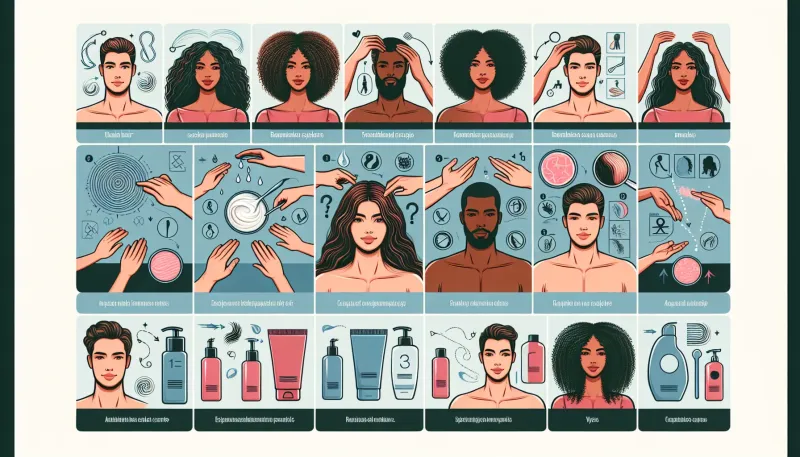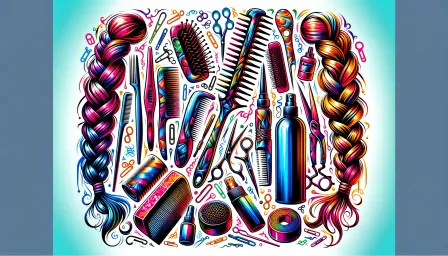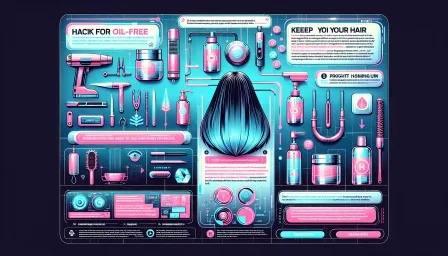Top Haircare Tips for Effective Dandruff Control

Discover effective haircare tips for dandruff control. Learn how to manage and prevent dandruff with expert advice and solutions.
Dandruff can be an incredibly frustrating condition, affecting not just your scalp but also your confidence. With flakes on your shoulders and an itchy scalp, it can sometimes feel like an uphill battle. But worry not—dandruff is a common issue that can be managed effectively with the right haircare routine. In this article, we'll delve into the top haircare tips for effective dandruff control, providing valuable insights and practical advice to keep your scalp healthy and flake-free.
Understanding Dandruff
Before diving into the solutions, it's crucial to understand what dandruff is. Dandruff is a common scalp condition characterized by the shedding of dead skin cells from the scalp. While it's not a serious medical issue, it can be quite embarrassing and sometimes even difficult to treat.
Causes of Dandruff
- Dry Skin: One of the most common causes of dandruff is dry skin. When your scalp is dry, it can begin to flake and shed, causing dandruff.
- Oily Skin: Paradoxically, an overly oily scalp can also lead to dandruff. Excess oil can irritate the skin, causing it to shed more frequently.
- Fungal Infections: Malassezia, a type of yeast that naturally lives on your scalp, can grow out of control and cause dandruff.
- Skin Conditions: Conditions like psoriasis, eczema, and seborrheic dermatitis are also linked to dandruff.
Effective Haircare Tips for Dandruff Control
1. Use Anti-Dandruff Shampoo
One of the most effective ways to manage dandruff is by using a specialized anti-dandruff shampoo. These products contain active ingredients like zinc pyrithione, salicylic acid, and ketoconazole, which help control the underlying causes of dandruff. Make sure to use the shampoo as directed, and don't hesitate to try different brands until you find one that works for you.
2. Maintain Scalp Hygiene
Regularly washing your hair can help remove excess oil and dead skin cells, reducing the occurrence of dandruff. However, avoid using harsh shampoos that strip your scalp of its natural oils, as this can worsen the problem. Opt for gentle, sulfate-free shampoos that maintain your scalp's natural balance.
3. Moisturize Your Scalp
If your dandruff is caused by a dry scalp, keeping your scalp moisturized is crucial. Use a lightweight, non-greasy conditioner or oil to hydrate your scalp. Ingredients like coconut oil, tea tree oil, and aloe vera have moisturizing properties and can provide relief from dryness.
4. Brush Your Hair Regularly
Brushing your hair regularly helps distribute the natural oils from your scalp along the hair shaft, preventing the build-up of dead skin cells. Use a soft-bristled brush to avoid irritating your scalp.
5. Avoid Heat Styling
Excessive use of heat styling tools like blow dryers, straighteners, and curling irons can exacerbate dandruff by drying out your scalp. Allow your hair to air dry whenever possible, and use heat styling tools sparingly.
6. Manage Your Diet
Your diet can play a significant role in the health of your scalp. Ensure you're consuming a balanced diet rich in vitamins and minerals, particularly zinc, B-vitamins, and omega-3 fatty acids. Drinking plenty of water also helps keep your scalp hydrated.
7. Manage Stress
Stress is known to exacerbate many skin conditions, including dandruff. Practicing stress-management techniques such as yoga, meditation, and regular exercise can help keep your stress levels in check and improve your overall scalp health.
When to See a Dermatologist
While over-the-counter treatments and lifestyle changes can be effective for managing dandruff, there are instances where medical intervention may be necessary. If your dandruff persists despite trying these tips, or if you notice severe irritation, redness, or hair loss, consult a dermatologist. They can prescribe stronger treatments and diagnose any underlying conditions contributing to your dandruff.
Conclusion
Dandruff can be challenging, but with the right haircare routine, it is certainly manageable. By understanding the causes of dandruff and applying these effective tips, you can take control of your scalp health and keep those pesky flakes at bay. Remember, consistency is key, and sometimes it might take a bit of trial and error to find what works best for you. Here's to a healthier, flake-free scalp!



























